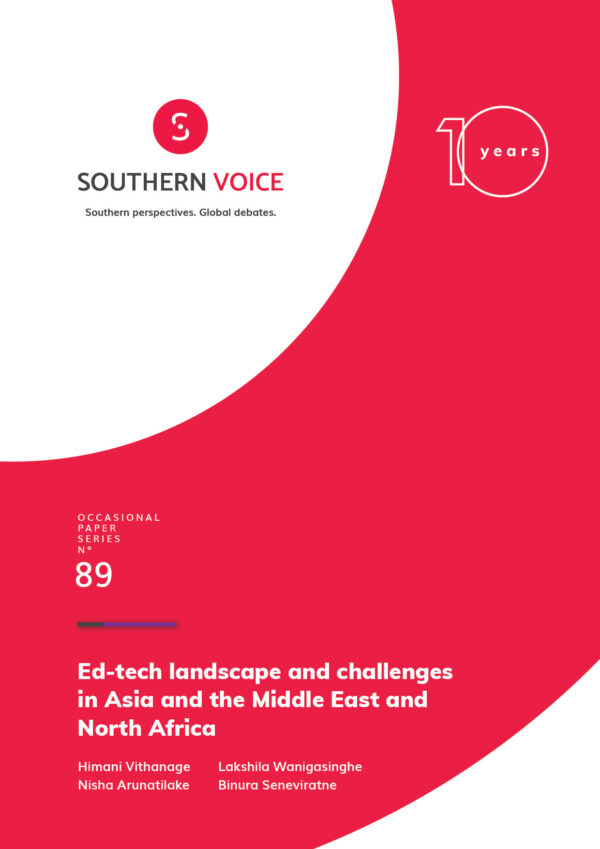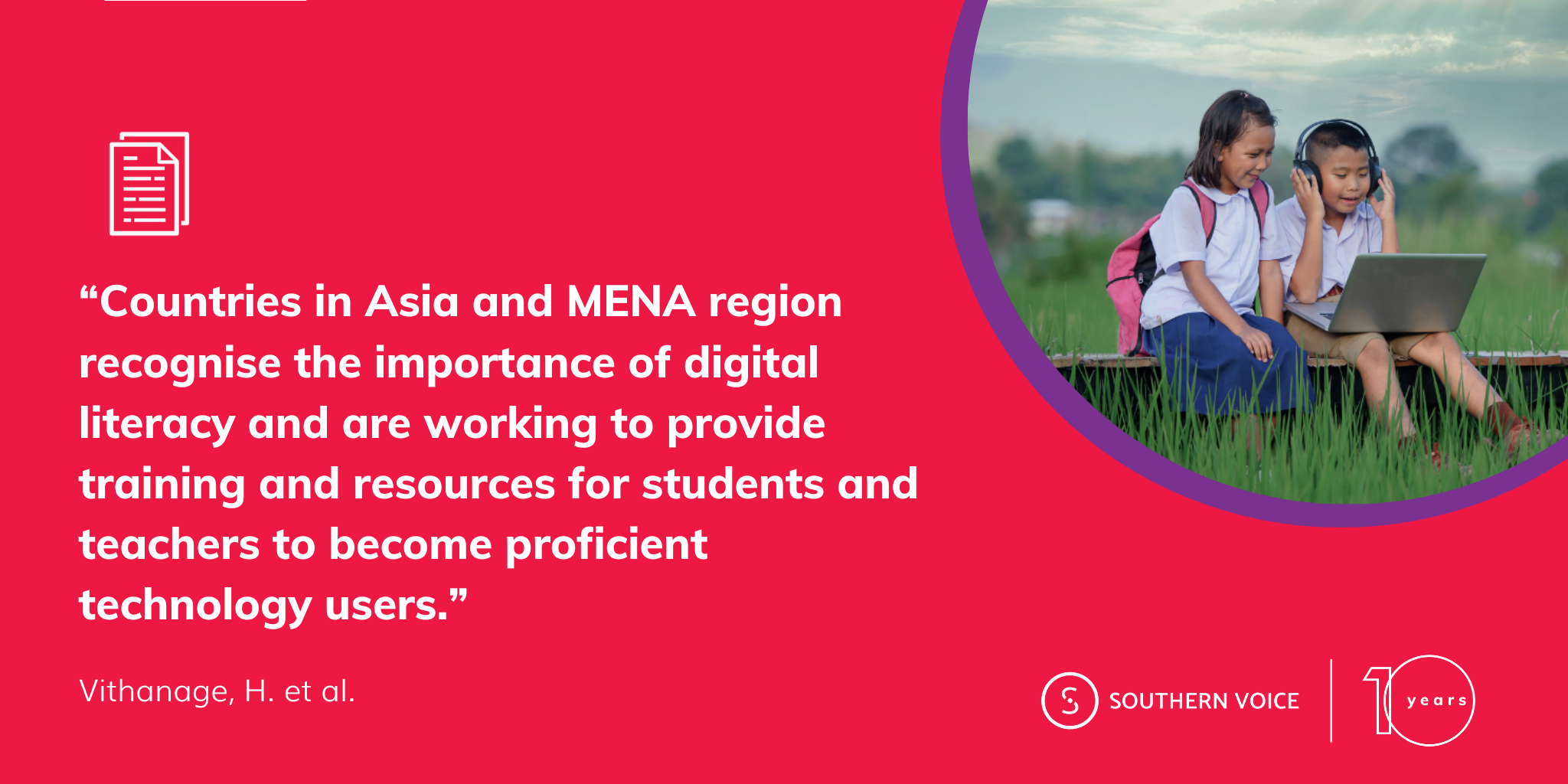This blog post looks at the challenges and shifts that the development landscape has experienced over the last decade. It…

This study aims to provide an overview of the diverse programmes, policies and interventions (PPIs) in Ed-tech that exist in South Asia, South East Asia, and the Middle East and North Africa. It outlines key initiatives in nine countries to provide a description of the primary aims, uses and types of Ed-tech, and the ways that local governments have prioritised and implemented Ed-tech at the national level. Whilst country-level initiatives aim to reach different target populations, what becomes clear is that many of the ed-tech PPIs studied here focus on improving the quality of and access to education.
A cross-country and cross-regional comparison highlights the shared facilitating factors that promote and encourage the uptake of Ed-tech at a national level, such as adequate teacher training, adequate investment and political buy-in. This study also shows factors hindering the uptake of Ed-tech to provide a descriptive analysis on issues with infrastructure, cultural factors, and physical access to technological devices. Since the COVID-19 pandemic, there has been a global increase in interest, investment and relevance in Ed-tech from all stakeholders. It is this continued evolution of Ed-tech that ensures its relevance and sustainability into the future across the region.


